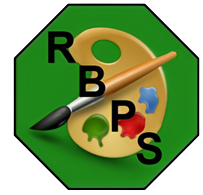British Values
Promoting British Values
In accordance with The Department for Education we aim to actively promote British values in schools to ensure young people leave school prepared for life in modern Britain. Pupils are encouraged to regard people of all faiths, races and cultures with respect and tolerance and understand that while different people may hold different views about what is ‘right’ and ‘wrong’, all people living in England are subject to its law.
The British Values are:
- democracy
- rule of law
- individual liberty
- mutual respect
- tolerance of those of different faiths and beliefs
Democracy
Pupils, parents, and staff should have the right to have their voices heard. Pupils have the opportunity to have their voices heard through a pupil elected school council where class representatives raise issues and suggest ideas for improvement. Parents and guardians should also be given the opportunity to express any concerns or queries through parents evening and regular contact with staff. Children are always able to voice their opinions and we foster an environment where children feel safe to disagree with each other. Through RE, the wider curriculum and assemblies, pupils discuss and debate fundamental questions about life.
Individual Liberty
At Richard Bonington we promote the freedom of choice and the right to respectfully express views and beliefs in a safe and supportive environment. We teach children to take responsibility for their behaviour. They are supported to understand that they have rights and personal freedoms and are advised how to exercise these safely. Pupils are supported to become as independent as possible. This can be demonstrated through PSHE lessons, assemblies and attitudes of staff around school. In RE lessons we promote individual liberty through teaching and questioning about identity, belonging and diversity as outlined in the Nottingham Agreed Syllabus.
Mutual Respect and Tolerance
Respect is a key part of our school ethos. Our behaviour code is based around ensuring all children follow the ‘Always code’ and respect one another and treat each other fairly. This is frequently discussed with the children through circle time, PSHE, RE and assemblies. Pupils are taught to show empathy and understanding of people from different backgrounds and to understand their place in a culturally diverse society. They are given regular opportunities to learn about different cultures and beliefs . This allows them to understand and respect different values that are different from their own. Members of different faiths or religions are encouraged to share their knowledge to enhance learning within classes and the school. Our inclusive ethos and the work we do to support local and national charities promotes understanding and respect for different groups in society.
Rule of Law
The children at Richard Bonington are taught about the importance of laws. They learn about the rules that govern their class and our school, such as our ‘Always code’ , which ensures they treat themselves and others with respect and care. We regularly celebrate our children who hold up the always code through assemblies, dojo rewards, newsletters and certificates. The children are also taught about the laws that govern and protect us and the consequences when laws are broken. This is supported by our drugs awareness program, NSPCC sessions and other visitors throughout the year.
Sgt William Clarke was the first black pilot to fly for the Royal Airforce. He volunteered to fight during World War 1. He was injured by being shot in the spine during a dog fight in the air against 6 German fighter planes. He managed to land his aircraft and returned to duty after recovering.
When I was younger I would have loved to have joined the RAF and fly aircraft. Later on I realised that I didn't actually like flying and that I would have been very scared if there really was a war. I think that William must have been very brave.
Supporting local charities
Over the school year we hold several fundraising events to help support local charities.

